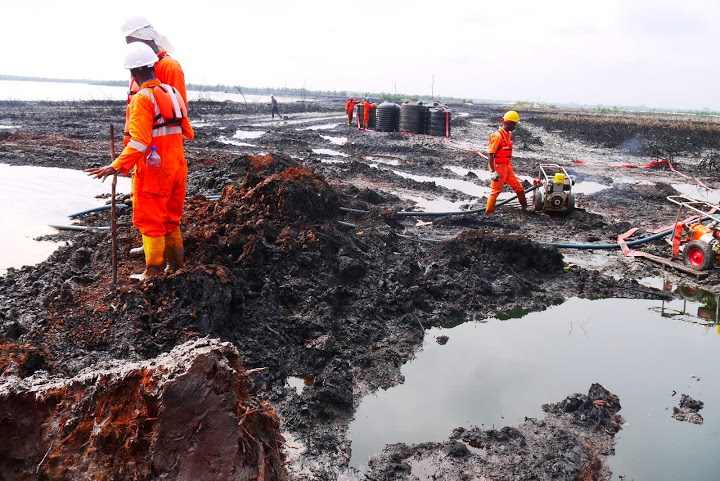Government
Annual $200m Clean-up Budget for Ogoniland Not Sustainable — Report

- Annual $200m Clean-up Budget for Ogoniland Not Sustainable — Report
The Centre for Environment, Human Rights and Development has called on the government to abandon the annual $200m budget for the cleaning of Ogoniland and work out a sustainable funding system.
Speaking at the presentation of a report – Operationalisation of the Emergency Measures and Clean-up of the Niger Delta: Issues, Challenges and the Way Forward — the Head, Environment and Conservation, Dr Kabari Sam, noted that the budget was not sustainable.
Sam said that HYPREP should “jettison the unsustainable $200m per year strategy for funding the Ogoni clean-up exercise and develop a robust funding mechanism.”
He also urged HYREP to develop a work plan that would indicate short, mid, and long-term goals of the project lifecycle.
He also called on the Federal Government to work towards the independence of the HYPREP through legislation, arguing that the project that was billed to last for 25 years or more should have a legal framework.
The report also called on the Federal Government to articulate adequate policies and enact legislation to prevent new oil spillage.
The report said, “HYPREP has been very equivocal on issues of compensation. In several forums, HYPREP has consistently opined that payment of compensation is not part of their mandate and thus would not be considered.
“HYPREP’s decision is predicated on UNEP report, which clearly did mention that compensation should be paid to local communities. However, a succinct research undertaken by the Centre for Environment, Human Rights and Development clearly indicated the desire of local communities for payment of compensation.
“Majority of the communities sampled insist that economic losses should be compensated for, given the over five decades of soil and groundwater contamination that has destroyed traditional livelihood structures.”